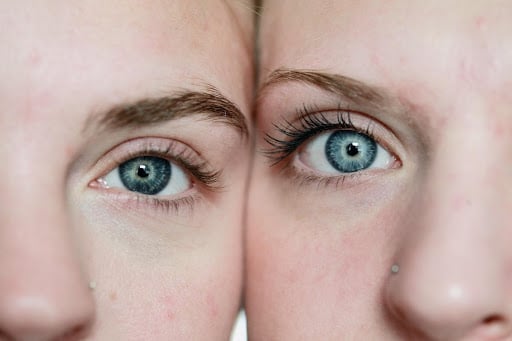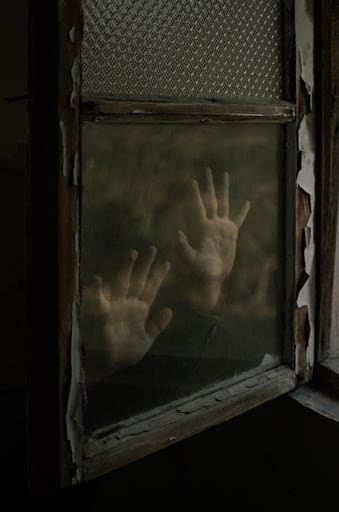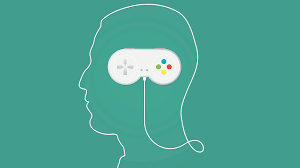Table of Contents
It all started when I was unable to sleep for two weeks and started to hear hallucinatory voices. They asked me to jump off the train tracks, told me that I was a loser and that I would definitely fail my examinations. I was first warded into an inpatient unit when I heeded the voices and jumped off the tracks at a train station.
Kurtle is a teenager who wrestled with psychosis, or hallucinations, and delusions. Another young adult, Ying Ying, had her psychotic break at 25 and it came as a shock to her family as she is a jovial and happy-go-lucky person. Ying Ying was suddenly stricken with paranoid delusions which plagued her reality and she was in the midst of pursuing a doctoral degree at that time.
Both Kurtle and Ying Ying were diagnosed with schizophrenia. Many experience psychosis for at least six months before seeking professional help. During that time, they start to deteriorate in daily functioning at work or school and find it challenging to maintain interpersonal relationships. Schizophrenia is no respecter of age, but its onset is often in adolescence or young adulthood, and it hits both men and women.
Myths
TV and the media have been casting an erroneous shade on schizophrenia, and that has caused stereotypes on people who suffer the mental condition. Patients with this ailment suffer from a serious mental condition that causes them to hear or see things, and people with insufficient clarity on schizophrenia may assume they are ‘possessed’ or ‘crazy’. They are generally also thought of as dangerous and violent and have multiple personalities.
Even though people with schizophrenia can undergo mood swings (like most of us do!) and they can get unpredictable at times, most of them are not violent. In fact, they may be victims of violence. And because this condition comes along with others like anxiety and depression, they are more likely to inflict self-harm instead.
In reality, people with schizophrenia are just like any of us – pursuing an education or an ambition. Unfortunately, the condition impairs cognitive functioning with attention, learning, and memory, which impedes their ability to carry out certain tasks, but that does not mean that they are not intelligent.
Symptoms of Schizophrenia
There are many signs of this illness and they are often severe enough to be noticed by people around them. Symptoms are grouped into four categories:
Positive
- Delusions.
These are strange beliefs that are not rooted in reality. A delusional person may stubbornly choose to be what he/she wants to even though facts prove otherwise. Extreme cases like thinking that one is the devil or god may occur. Their reality can also be engulfed in paranoia, thinking that they are being plotted against.
- Hallucinations.
Seeing or hearing them that are not real constitutes having hallucinations. Commonly, people with schizophrenia hear voices berating or insulting them.
- Catatonia.
The person may freeze and stop speaking or moving, and be fixed in a single position for a very long time.
Disorganised
- Not being able to think or respond clearly such as uttering gibberish,
- Being illogical such as making senseless repetitions, gestures, and meaningless writing
- Moving slowly
Cognitive
- Trouble paying attention
- Unable to comprehend or process information
- Lack of self-awareness that they have any of these problems
Negative
This category notes the absence of normal behaviours, such as
- Lack of emotion
- Lack of energy
- Socially withdrawn
- Lack of motivation
- Loss of pleasure
- Poor hygiene and grooming habits
Who can get schizophrenia?
This debilitating condition can affect anyone and at any age. Researchers have not been able to find the exact cause of schizophrenia, but there is a greater likelihood to contract it if it runs in the family. It has been found that if one identical twin sibling has schizophrenia, the other has a 1 in 2 chance of developing it, even though they may be raised separately.
Some findings also suggest that people with schizophrenia may not be able to regulate brain chemicals called neurotransmitters that control ‘circuits’ which affect thinking and behaviour. This implies that structural and chemical changes in the brain could be at play. The chemical changes can sometimes be triggered by drug use.
Childbirth can also cause complications that increase the likelihood of a person developing schizophrenia. Some of these include infection during pregnancy, lack of oxygen during delivery, and premature labour.
People with schizophrenia have often reported an experience of childhood trauma. Some of them experience hallucinations related to the abuse or neglect they experienced during childhood. Children who experienced the death or permanent separation of one or both parents are also at higher risk of getting this condition.
Recovery is possible
Despite it being a detrimental illness, many have reported success stories of climbing out of the abyss towards recovery.
Kurtle worked with her psychologist and occupational therapist to make sense of her mental health condition. She learned to share her thoughts and cope with her symptoms. Even though she was admitted into the hospital a few times on her recovery route, her psychologist never gave up and encourage her to persevere on.
“It is crucial for mental healthcare professionals to see the person behind the illness. The person and the condition are separate,” Kurtle shares.
Ying Ying used to experience ‘grief attacks’ every time she thought about her family, as she was raised in the absence of a father. These episodes would leave her in uncontrollable tears and in physical pain in the chest and she wouldn’t be able to breathe. She eventually learned to cope with her condition when her counsellor helped her to see a side of her family dynamics that she was unable to see before. She eventually found time and courage to reconnect with her father.
“Schizophrenia is definitely a severe mental illness but it is treatable. A combination of medication plus psychotherapy enhances the recovery process,” says Eugene Chong, the director/principal counselling psychologist at Seeding Minds.
Treatment for schizophrenia
Healthcare professionals aim to help patients regain their daily functioning and interactions with others, while controlling the symptoms at the same time. A combination of medication and psychotherapy is usually required.
“Typically, the first line of treatment is often medication. They are the cornerstone of schizophrenia treatment because research indicates that they are able to control symptoms by affecting the brain neurotransmitter dopamine. The most commonly prescribed drugs are antipsychotic medications,” quips Eugene.
Psychotherapy helps the person make sense of his illness, can take various forms, and can be conducted on a one-to-one basis or in a group setting. The counsellor touches on issues such as the person’s feelings about the illness, his/her experience of medication, denying the illness, the impact that the illness has on the person’s self-esteem, interpersonal relations, and other aspects of his/her life.
An anonymous patient encourages others in sharing his personal account, “Treatment required a trusting relationship between me and the therapists, as it was a collaboration and teamwork. Treatment also required patience and stamina.”
The patient shared that even cognitive therapy, which he learnt through counselling, required much practice. He combined medication, cognitive therapy that helped him to manage symptoms such as hearing voices and joined support groups. Through perseverance and determination, he managed to graduate from high school and complete his college education.
“People with mental illness and their therapists work incredibly hard to recover. One must persevere and never give up. Success is possible.”
Eugene is the director/principal counselling psychologist at Seeding Minds. He has 16 years of experience and is an adjunct lecturer for psychology and counselling training programmes. Apart from schizophrenia and psychotic disorders, he also specialises in anxiety/panic disorders and life transitions, just to name a few.
Sources:
https://www.healthhub.sg/a-z/diseases-and-conditions/625/schizophrenia_IMH
https://www.mayoclinic.org/diseases-conditions/schizophrenia/symptoms-causes/syc-20354443
https://www.webmd.com/schizophrenia/mental-health-schizophrenia
https://www.healthline.com/health/schizophrenia-causes#drug-use
Known as Nate, I am someone who cannot quit wielding the pen or punching the QWERTY, no matter where life brings me. Writing has always been the most effective conduit for channeling my wanted or unwanted opinions since I was an undergraduate at NUS. Naturally, I used this skill as a means of sustenance after working as a writer and editor for many years until I decided to start a business in music. That did not put a halt to my marriage with the vernacular.
In October 2016, I graduated with my Masters in Visual and Media Anthropology, which is the study of cultures through films and photography, at Freie Universität Berlin. This transitory period of residing in two cities has pushed the boundaries of my creativity and my battles with word count have not ceased.
Now a new mode of writing, the academic one, has been added to my existing smorgasbord of corporate and lifestyle collaterals, articles, advertisements, annual reports and books. At the moment, my learning curve is an uphill journey as I attempt to grasp the camera for stills and motion clips, while I juggle that with developing my love affair with my other mode of expression – electronic music.








